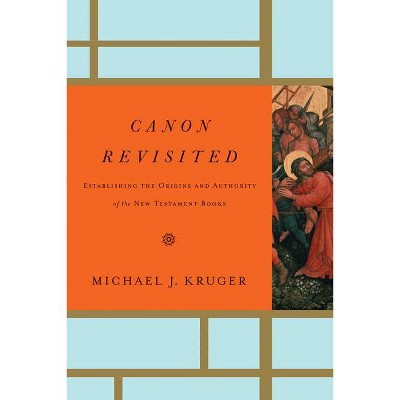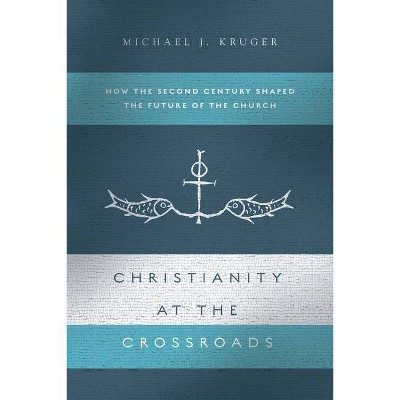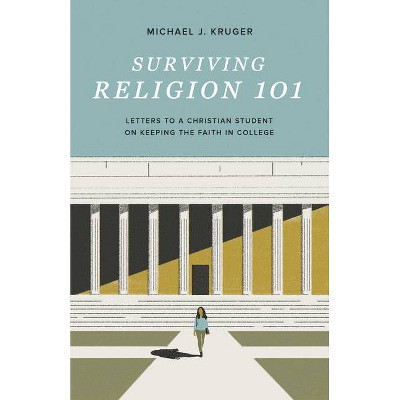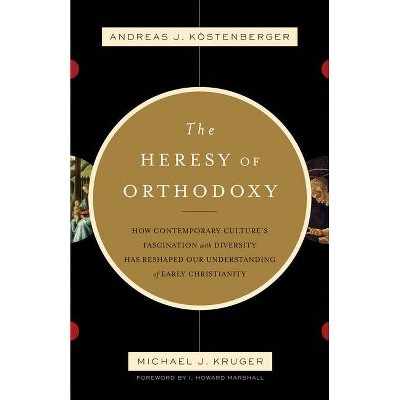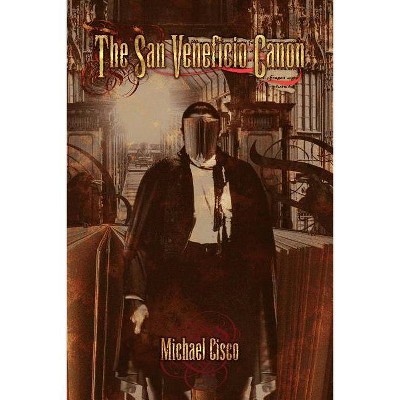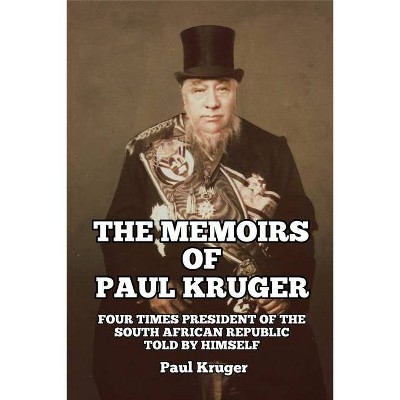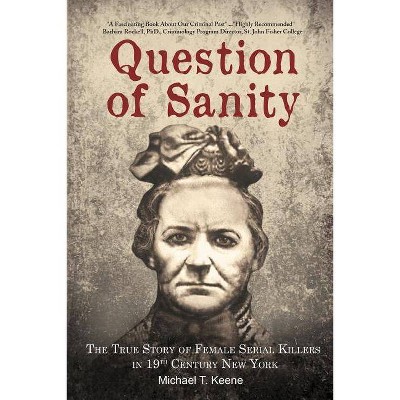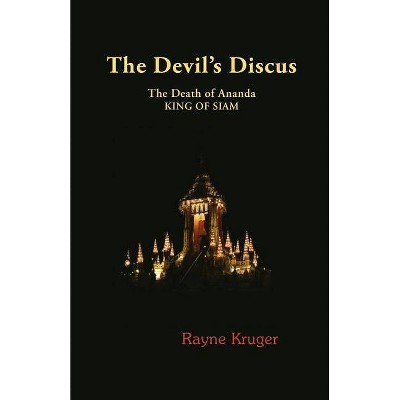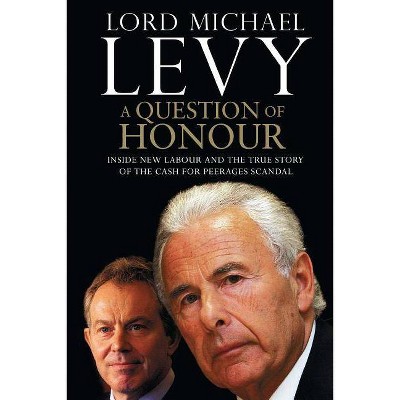The Question of Canon - by Michael J Kruger (Paperback)
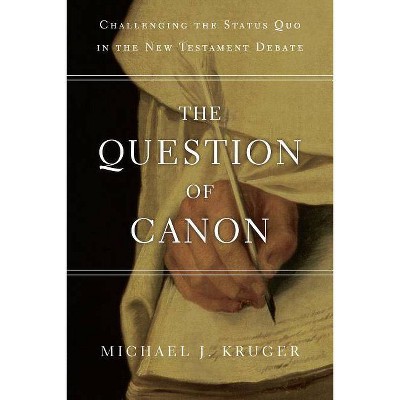
Similar Products
Products of same category from the store
AllProduct info
<p/><br></br><p><b> About the Book </b></p></br></br><p>Were the books of New Testament canon <em>written</em> as Scripture or did they <em>become</em> Scripture by a decision of the second-century church? Michael J. Kruger challenges the commonly held extrinsic view on the emergence of the New Testament canon in favor of a canon that arose naturally from within the early Christian faith.</p><p/><br></br><p><b> Book Synopsis </b></p></br></br><ul> <li>2013 <em>Preaching</em> Survey of the Year's Best Books for Preachers</li> <li> <em>Preaching's</em> Preacher's Guide to the Best Bible Reference for 2014 (New Testament General)</li> </ul><p>Did the New Testament canon arise naturally from within the early Christian faith? Were the books <em>written</em> as Scripture, or did they <em>become</em> Scripture by a decision of the second-century church? Why did early Christians have a canon at all? These are the types of questions that led Michael J. Kruger to pick apart modern scholarship's dominant view that the New Testament is a late creation of the church imposed on books originally written for another purpose. Calling into question this commonly held extrinsic view, Kruger here tackles the five most prevalent objections to the classic understanding of a quickly emerging, self-authenticating collection of authoritative scriptures. Already a noted author on the subject of the New Testament canon, Kruger addresses foundational and paradigmatic assumptions of the extrinsic model as he provides powerful rebuttals and further support for the classic, intrinsic view. This framework recognizes the canon as the product of internal forces evolving out of the historical essence of Christianity, not a development retroactively imposed by the church upon books written hundreds of years before. Unlike many books written on the emergence of the New Testament canon that ask when? or how? Kruger focuses this work on the why?--exposing weaknesses in the five major tenets of the extrinsic model as he goes. While <em>The Question of Canon</em> scrutinizes today's popular scholastic view, it also offers an alternative concept to lay a better empirical foundation for biblical canon studies.</p><p/><br></br><p><b> Review Quotes </b></p></br></br><br><p>[T]his volume represents the kind of work [Kruger's] faculty should aspire to emulate. He takes the serious questions related to the canon head-on and helps the reader to work through these issues in order to gain a greater appreciation for and confidence in the canon as the correct shape of God's written Word.</p>--R. Albert Mohler, The 2014 Preaching Survey of the Year's Best Books for Preachers, March/April 2014<br><br><p>I found it a fascinating, well-balanced and worthwhile read.</p>--Margaret Baxter, The Reader, Summer 2014<br><br><p>Kruger has provided us with another useful and challenging contribution to this flourishing field of study. He rightly emphasizes giving greater weight to the historical reliability that the canon's development was early and natural, as well as not automatically adopting one model over and against all others. Students, pastors, and scholars alike will benefit greatly from this volume for years ahead.</p>--Daniel J. Vitalo, Journal of the Evangelical Theological Society, June 2014<br><br><p>The book is a fascinating read which deals with a most important subject in a most helpful and scholarly way.</p>--Evangelicals Now, March 2014<br><br><p>The issue of how and why the biblical canon was set in the early church continues to be a strong and important discussion in contemporary biblical and theological scholarship. This book is a very helpful voice in that debate. Kruger describes the sides of the debate as those who see the canon shaped by 'extrinsic' factors--that is, outside forces such as the decisions of church or imperial leaders or reactions to heretical views--or 'intrinsic' factors such as the model provided by Judaism, the circulation and reception of these sacred texts by the early Christian community, and the apostolic authority of the texts themselves.</p>--The Bible Today, 2014<br>
Price History
Price Archive shows prices from various stores, lets you see history and find the cheapest. There is no actual sale on the website. For all support, inquiry and suggestion messages communication@pricearchive.us
